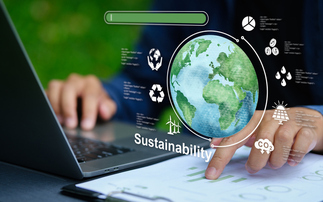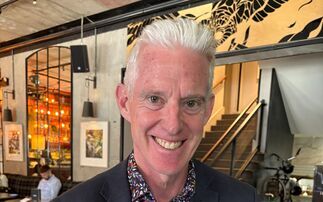BusinessGreen caught up with Unilever's chief executive after the company announced it would become 'carbon positive' by 2030
JM: How is Unilever planning to deliver on the goals and policies that are likely to be set out in Paris?
PP: There is growing momentum for change across the wider economy - this is much bigger than Unilever. However, we stand ready to play our part in delivering whatever agreement is reached in Paris and ensuring the Sustainable Development Goals agreed at the UN General Assembly are met. We will continue to work towards the aims set out in our sustainable living plan, which commits us to halving the environmental footprint of the making and use of our products by 2020.
In our manufacturing operations we've achieved one million tonnes of carbon savings to date and zero waste to landfill in all of our factories. We've invited competitors to adopt our compressed deodorant technology to help the whole industry cut its aerosol carbon footprint by 25 per cent. And, together with others in the industry, we're working towards zero net deforestation. That's because we cannot do this alone. We need transformational change, which means working in partnership to deliver the greatest collective impact on climate.
We are seeing that there is a clear business case for investing in sustainability. Eco-efficiency measures in our factories have saved us over €400m since 2008. Consumers are demanding it too - last year our most sustainable brands grew twice as fast as the rest of the business. Bold climate action should not be viewed as a burden, but as a historic economic opportunity.
Last week we announced our intention to be carbon positive by 2030. To do this we will source 100 per cent of our energy across our operations from renewable sources by 2030 and all electricity purchased from the grid from renewables by 2020. In addition to this we will eliminate coal from our energy mix by 2020.
We know this target is challenging and in order to achieve it we intend to directly support the generation of more renewable energy that we consume and make the surplus available to the markets and communities in which we operate.
This is the latest step on our journey to sustainability. It is my hope that at COP 21 we will see more and more businesses and consumers join us on this path.
Outside of the 'usual suspects' do you feel climate change is taken sufficiently seriously by your CEO peers? How can you engage more of them to prioritise climate action?
Business can no longer stand on the side-lines of this issue. The effects of climate change threaten us all, impacting both consumers and supply chains and hitting the poorest communities hardest. If we don't all tackle climate change in a constructive way, global economic growth will be stifled.
The cost of inaction is now greater than the cost of action. In the last decade, the world spent $2.7tr more on natural disasters than usual; the same disasters are costing Unilever around €300m a year. Increasingly businesses are realising this and have already begun to act. For example global companies have set targets to reduce their carbon intensity in line with a target of six per cent reduction per year; over 75 per cent of the largest companies have set clear sustainability targets; and, more than 1,000 organizations have signed the World Bank Carbon Pricing Statement, asking governments to set a carbon price.
Increasingly we are seeing global businesses not just supporting the movement to tackle climate change but actively leading the debate. Business and industry groups such as the 'We Mean Business' coalition, WEF's Tropical Forests Alliance, the UN Global Compact and the World Business Council for Sustainable Development are demonstrating that the private sector and other non-state actors can have real impact and scale in reducing emissions.
We are advocating that other businesses step up their own leadership and make at least one of the commitments outlined by We Mean Business coalition such as setting a price on carbon in their internal investments and committing to moving to 100 per cent renewable electricity.
Do you accept the argument that companies that fail to invest in decarbonised business models risk ending up with stranded assets if the Paris Summit delivers on its goals?
I have long held a personal conviction that business can't be a bystander in a world that gives it life in the first place. It must be part of the solution not problem. It's not just a moral obligation.
Those that embrace a low carbon economy will be best placed to succeed as sustainable business models will drive future growth.
By agreeing to a long term goal for decarbonisation in the Paris Climate Deal, heads of state will be sending a strong signal to businesses and investors about their commitment to decarbonising the global economy and securing future economic growth.
I believe those who choose to ignore this will find themselves out of step with governments, investors and the customers they serve.
Put simply sustainable solutions make business sense. More than half of the Fortune 100 companies are saving in aggregate around $1.1bn per year from emission reduction initiatives.
It is clear that momentum is building behind this view - more companies are committed to bold leadership on climate action than at any time in history. Currently, more than 4,000 global companies report their greenhouse gas emissions and over 1,000 major companies have signalled their support for carbon pricing.
I'm excited about the potential of what can be agreed at Paris and what it will mean for our children and their children.
This article is part of BusinessGreen's Road to Paris hub, hosted in association with PwC.








